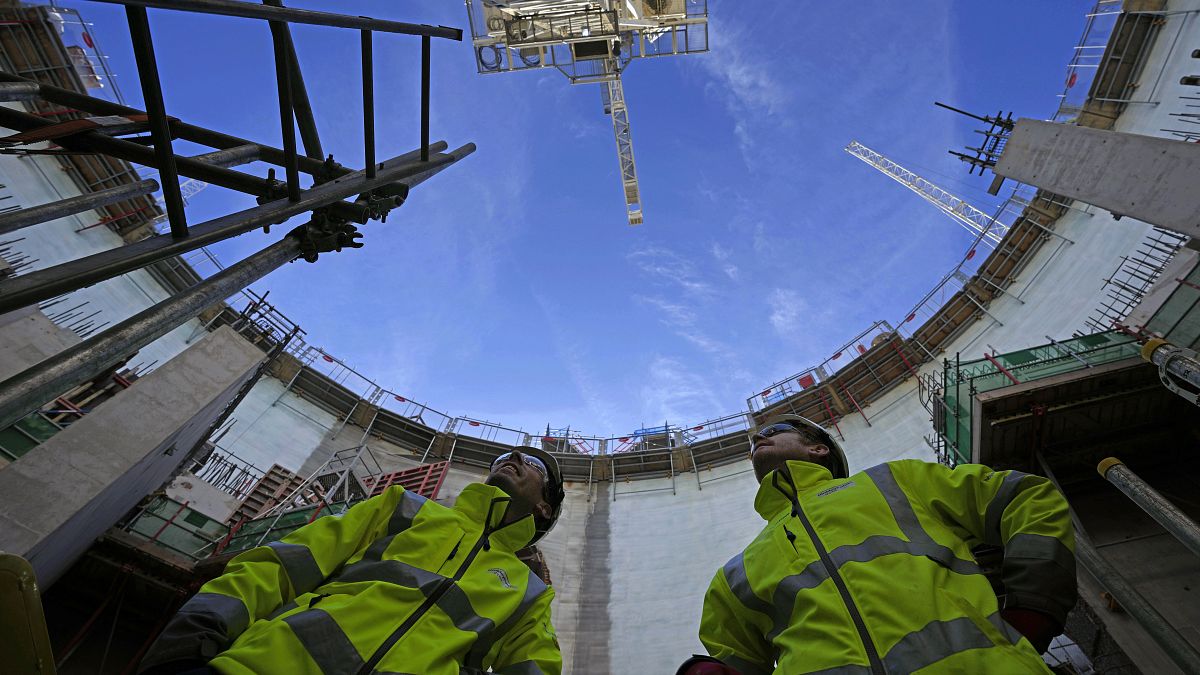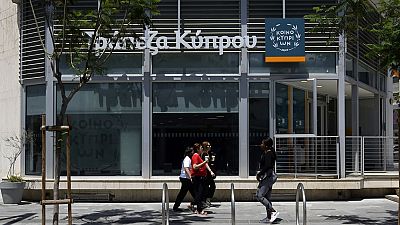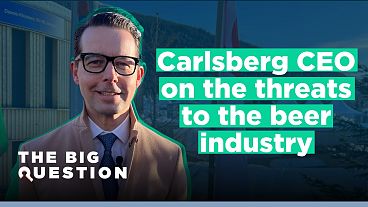Taking into account price rises, the final cost is one-third higher than expected and the construction takes years longer, developer EDF said.
Hinkley Point C, a major nuclear plant that Britain's government hopes will generate affordable, low-carbon energy could cost up to £46 billion (€53.76 billion), and the completion date could be delayed to 2029, at the earliest, French state-owned developer, EDF, said on Wednesday.
The UK government says nuclear projects like the Hinkley Point C plant are a key part of its plans to achieve its "net zero" by 2050 as it plans for nuclear energy to provide 25% of the UK's electricity by then.
Previously, in 2022, the cost of the nuclear plant was estimated to be £26 billion, targeting June 2027 to complete the project and start producing electricity, reported the BBC.
But a re-evaluation showed that the final bill for the plant, being built in Somerset in southwest England, could soar up by about one-third.
"Like other infrastructure projects, we have found civil construction slower than we hoped and faced inflation, labour and material shortages — on top of Covid and Brexit disruption," said Stuart Crooks, managing director of Hinkley Point C.
EDF and the UK government have said the plant, once operational, is going to generate enough to power 6 million homes and provide some 7% of the country's electricity.
The Conservative government is investing heavily in nuclear power, with ambitions to generate up to a quarter of the country's projected electricity demand by 2050.
Could nuclear energy provide the path to "net zero"?
The investment has divided opinion and drawn criticism from green groups.
Some experts say nuclear energy will be needed to help nations wean off fossil fuels, but there are concerns about the substantial cost and timescale of building large nuclear reactors as well as worries over safety and nuclear waste. Other clean energy, such as wind farms, can be built and come online much faster.
Critics, including the UK government's own climate advisers, say the UK's support for new domestic oil and gas production and its slow pace in transitioning to green energy were undermining its “net zero” pledges.
Authorities have promised to reduce emissions by 68% by 2030, eventually reaching net-zero — or releasing only as much greenhouse gas as can be absorbed again through natural or technological means — by 2050.



